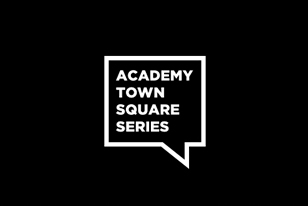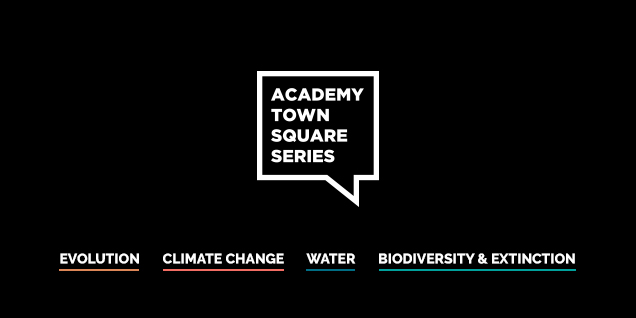Academy Town Square


Academy Town Square: Birding is for Everyone

May 29, 2025
6–7 p.m. Talk with Dexter Patterson, followed by a Q & A moderated by DVOC’s Navin Sasikumar
Join the Delaware Valley Ornithological Club (DVOC) and the Academy of Natural Sciences in welcoming Dexter Patterson — also known as the Wisco Birder — for a heartfelt and inspiring session on the power of birdwatching to connect, heal and uplift. With his signature joy and dynamic storytelling, Dexter shares how discovering birds led him on a journey of healing, purpose and community building.

You’ll learn how birding promotes mental wellness, environmental stewardship and meaningful social connection. From beginner tips to inclusive outreach strategies, Dexter offers practical insight and personal stories illustrating how watching birds can open hearts and build bridges.
Reflecting on his journey, from reconnecting with nature to co-founding the BIPOC Birding Club of Wisconsin, Dexter shares how providing opportunities for others outdoors has ignited a growing movement. Whether you're an experienced birder or simply curious, this talk will remind you that nature is for everyone — even you.
Past Academy Town Squares
Conscious Fashion: Weaving a Sustainable Future
A cozy sweater to match your jeans, a new scarf to go with your coat, a few stylish shirts for the gym and maybe those cute yoga pants — shopping for clothes is fun, and depending on your tastes, affordable. But there are bigger costs than the price tag you see at the store. Every item in your closet has gone through many steps in a complex production process, from harvesting fibers, dyeing, and sewing to shipping and sales. And each step for these garments has major environmental consequences.
On Thursday, January 30, join us for a Town Square discussion on clothing and where it comes from. WHYY's Maiken Scott will chat about sustainable fashion with Heidi Barr, co-founder and CEO of PA Flax Project; Rachel Higgins, co-founder of PA Fibershed and instructor at Drexel University in the fashion industry and merchandising program; and Kimberly McGlonn, designer, CEO of NOOR by Grant Blvd and author. They will talk about their work in the fashion industry and address the challenges we face together in building a local, more sustainable supply chain.
Academy Town Square: Planting for the Future
In neighborhoods across Philadelphia, communities from the Philippines, Burma, Puerto Rico, Vietnam and the African Diaspora steward gardens and farms filled with ancestral plants, where cultural heritage and community science converge
Join us for the next Academy Town Square where Maiken Scott, host of WHYY’s The Pulse, speaks with seedkeepers, farmers and botanists who share how preserving ethnobotanical histories and practices help to advance science and expand our understanding of the natural world — and ourselves. This conversation is in conjunction with Heirloom Plants: Ancestral Seeds in Philadelphia, an exhibition in our Spotlight Gallery on view through February 17, 2025.
Academy Town Square: A Transforming Earth: The Legacy of the Devonian Period
Join us for a deep dive into Earth’s remarkable history on Thursday, September 26, timed with the closing weekend of our exhibition Life Onto Land: The Devonian, which is on view through Sunday, September 29.
In this in-depth Academy Town Square conversation, you’ll hear about the Devonian, a transformational period hundreds of millions of years before the age of the dinosaur — when Earth’s forests first began to appear and first limbed animals emerged. Learn about this fascinating time from Academy scientist Ted Daeschler, paleoecologist Diana Boyer and paleobotanist Jonathan Wilson, whose research contributes to our shared understanding of evolution and Earth's history.
Academy Town Square: Reading the Rocks: How Geology Tells the Earth’s Story
Our planet is so old, it’s hard to wrap your head around – let alone fathom how short our lifespans on earth are – when compared with just about anything in the realm of geology. Join us for the WHYY & Academy Town Square where Maiken Scott explores with geologist and author Marcia Bjornerud how thinking like a geologist can have immeasurable impacts beyond our time.
Academy Town Square: Long Live Sturgeon! (And Other Amazing Fish of the Delaware River Basin)
Academy Town Square that originally took place February 15, 2024. A conversation hosted by WHYY’s Maiken Scott on the Atlantic Sturgeon, a fish that “epitomizes the global biodiversity crisis,” as well as other vulnerable fishes in the mid-Atlantic region. Panelists include Mariangeles Arce H. of the Academy, David Keller of the Academy, Eric J. Hilton of the Virginia Institute of Marine Science, and Dewayne Fox of Delaware State University.
Academy Town Square: Grasslands: Restoring Bird Habitat
Maiken Scott, host of WHYY's The Pulse, and bird conservationist Zoe Warner discuss a 10-year study conducted in Chester County that has led to greater insights into bird habitat needs and a visionary plan to protect them.
Academy Town Square: Lights Out Philly
During the fall 2020 migration season, a perfect storm of events led to the tragic deaths of thousands of birds from window strikes. This sorrowful occurrence galvanized a volunteer group called Bird Safe Philly, which is determined to prevent something similar from happening again.
Through their Lights Out Philly campaign, the group was able to convince many of the city’s building owners to turn out their lights at night during the spring and fall migration periods.
Join us for a conversation hosted by Sophia Schmidt, environmental reporter for WHYY, to better understand the challenges that birds face in urban environments and the ways that we can better protect them.
Academy Town Square Presents: Flooding in Philadelphia's Eastwick Community
In this special Academy Town Square, residents of Eastwick will share their challenges as well as their determined spirit — describing the history of a remarkable community organizing effort and raising awareness of what we can do to support it.
Academy Town Square Presents: More Livable Communities in an Era of Climate Change
As we adapt to our changing climate, unexpected benefits may follow — especially for marginalized communities. Efforts to reduce heating and flooding bring more green spaces that are known to strengthen mental health and improve communities.
Emergency preparedness efforts create more accessible areas for older and disabled members of the community. Join us to explore how these solutions to climate change provide an opportunity for equity to marginalized Black and Latino communities.
Views and opinions expressed by the speakers are solely their own and do not necessarily represent any associated institutions.
Academy Town Square Presents: Preparing for a Warmer, Wetter Philadelphia
Climate change is causing Philadelphia not only to heat up, but also to experience more frequent and intense flooding
events.
In this program we’ll explore how local communities are dealing with increasing temperatures
exacerbated by the urban heat island effect; natural cycles of flooding; and how urbanization and climate change
impact flooding risks in our city. But where there are challenges, there are people ready to step up and face them.
Find out how, from community groups to city government, Philadelphians are making efforts to understand and mitigate
the effects of a warmer, wetter Philadelphia.
Academy Town Square Presents: Gideon Mendel Drowning World
Gideon Mendel joined us for an Academy Town Square on May 6 to discuss his engagement with social issues as a
photographer and artist, including the challenge of making climate change visible.
Academy Town Square Presents: Voting for the Environment
“Voting for the Environment,” a free program in the Academy Town Square series, features a roundtable discussion with leaders of the League of Conservation Voters, Clean Air Council, and other key environmental and advocacy organizations.
Learn about the important issues that affect the local and global environment and how the upcoming election will influence them. Join us for this interactive discussion that will help you become a better citizen.